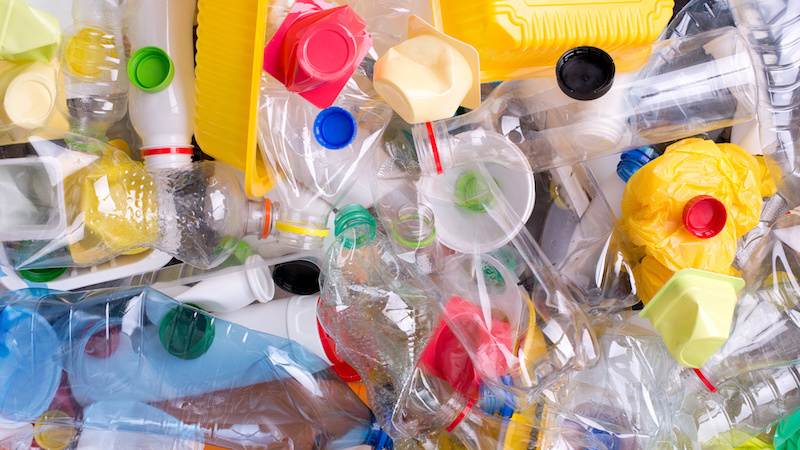How to spark UK innovation – insights from SSPP Challenge Director Paul Davidson
Paul Davidson, director of UKRI’s Smart Plastic Packaging Challenge (SSPP), delivered by Innovate UK, reflects on his experiences after the completion of the SSPP Challenge and shares his insights on how to best support UK innovators, whatever the sector.

We recently celebrated the successful completion of the Smart Sustainable Plastic Packaging Challenge (SSPP) at the Royal Society in London.
The past few weeks adjusting to life after SSPP have been a whirlwind, but they’ve also given me the first real opportunity to step away from the day-to-day of the challenge and reflect on what the experience has provided me.
I’ve no doubt my views will evolve with time as the true outcome of our efforts becomes clear, but while my memory is still fresh, I wanted to share some lessons for anyone looking to support UK innovators, whatever the sector.
Take a challenge-led approach
At the start of the year, I shared my hopes for the plastic packaging sector in 2025 with Packaging News and I’m pleased to say we’ve already seen real progress, thanks in no small part to SSPP-funded projects.
And with each step that SSPP and its funded projects take towards tackling plastic packaging waste, we continue to prove how successful our approach has been.
When we began working on SSPP, our ‘challenge’ approach was itself innovative. We quickly realised though, that by focusing on a single issue and consulting innovators from the outset on what they needed to address it, we could co-design solutions with real impact.
Focusing on a specific, targeted challenge was key. Facilitated by close working relationship between our team and innovation partners, it allowed us to build momentum quickly and seize opportunities as they arose. This was the heart of our approach and I believe should be a central consideration for any funding programmes looking to replicate our success.
Align your goals to the change you want to see
Clearly defining our challenge was of course critical, and wouldn’t have been possible if we hadn’t consulted at length with innovators in our sector.
Insight into the needs and priorities of our industry partners, in particular, proved to be crucial. Understanding clearly what drove them enabled us to identify the overlap between their incentives and the steps we needed to take to overcome our challenge of tackling plastic packaging waste. This has fostered constructive, longstanding relationships that have paid dividends.
With disruptive regulatory changes aimed at boosting sustainability, such as EPR legislation for plastic packaging producers, looming large in many sectors, this alignment of environmental and commercial goals is as pertinent as ever.
Don’t neglect late-stage innovators
Early feedback from the packaging sector also taught us that in order to boost innovative solutions to plastic waste, support was needed at all stages of the research and development process.
This prompted us to adapt our funding strategy early on to focus on late-stage innovations ready to scale up. Through our Large Scale Demonstrator competitions, we backed a smaller number of high-potential projects with larger grants and were able to effectively reshape the UK recycling landscape.
An example of the success of this approach is Mura’s RewNew ELP, based at Wilton, Teeside. The site, set to open this year, is the world’s first commercial-scale facility to make use of their Hydro-PRT chemical recycling technology, and will process the equivalent annual plastic packaging waste of approximately 693,000 Britons.
Know your limitations – but don’t let them hold you back
Finally, I would be remiss not to acknowledge things we could have done differently.
One area in particular that we saw less progress in than I’d hoped when I became challenge director is reuse and refill solutions to plastic waste. Although there is enormous potential, there is much work still to be done to fully embed these systems into the shopping experience.
In hindsight, our ambitions regarding reuse and refill and the role it had to play in SSPP’s response to the plastic waste crisis were highly ambitious.
Nevertheless, I am proud of SSPP’s work in this area and believe that through our support significant progress has been made, by encouraging us to tackle such a daunting part of the challenge we faced at all. SSPP supported some incredible projects in this space, and as I have outlined before in The Grocer, the change they are working to bring about could still be staggering.
Believe in UK innovation
This is by no means an exhaustive list of the lessons we learned during our journey supporting UK innovators addressing the plastic packaging waste crisis. I would be happy to discuss our findings further with anyone looking to take on a similar project, but if nothing else, I would encourage everyone to remember that the UK is home to some of the most brilliant innovators in the world. If we are ambitious and specific with our targets, provide them with the right support, and bring them into the process, there is no knowing what we can achieve.

SSPP Challenge Celebration Report
Find out more about UK Research & Innovation's Smart Sustainable Plastic Packaging Challenge, delivered by Innovate UK.
Read report
Related content

Smart Sustainable Plastic Packaging
UK Research & Innovation’s Smart Sustainable Plastic Packaging (SSPP) Challenge, delivered by Innovate UK with the involvement of the Natural Environment Research Council, was established to support bold, ambitious innovation to deliver a step change in the UK’s ability to reduce, reuse and recycle plastic packaging waste.

